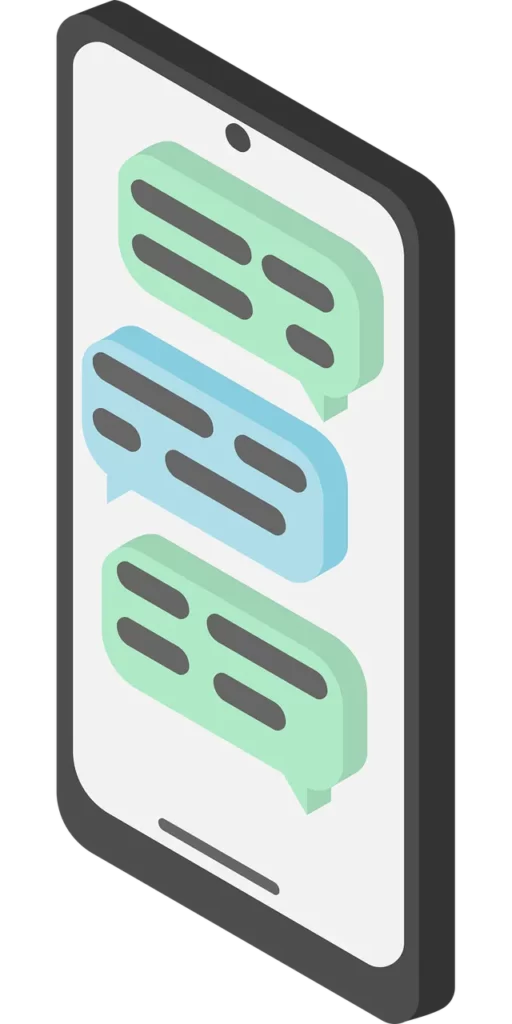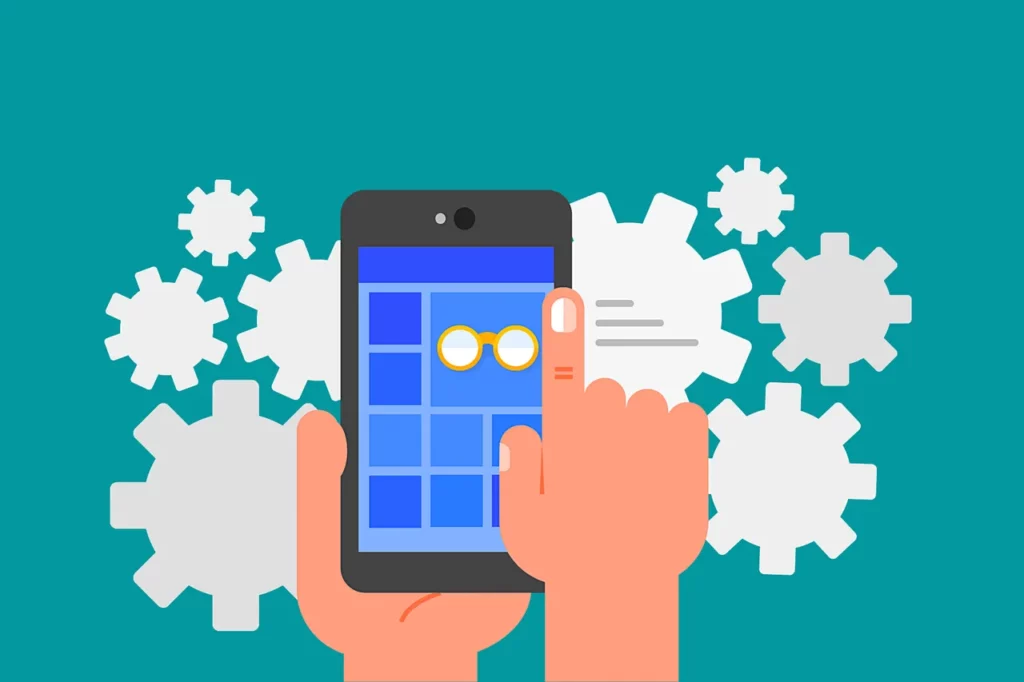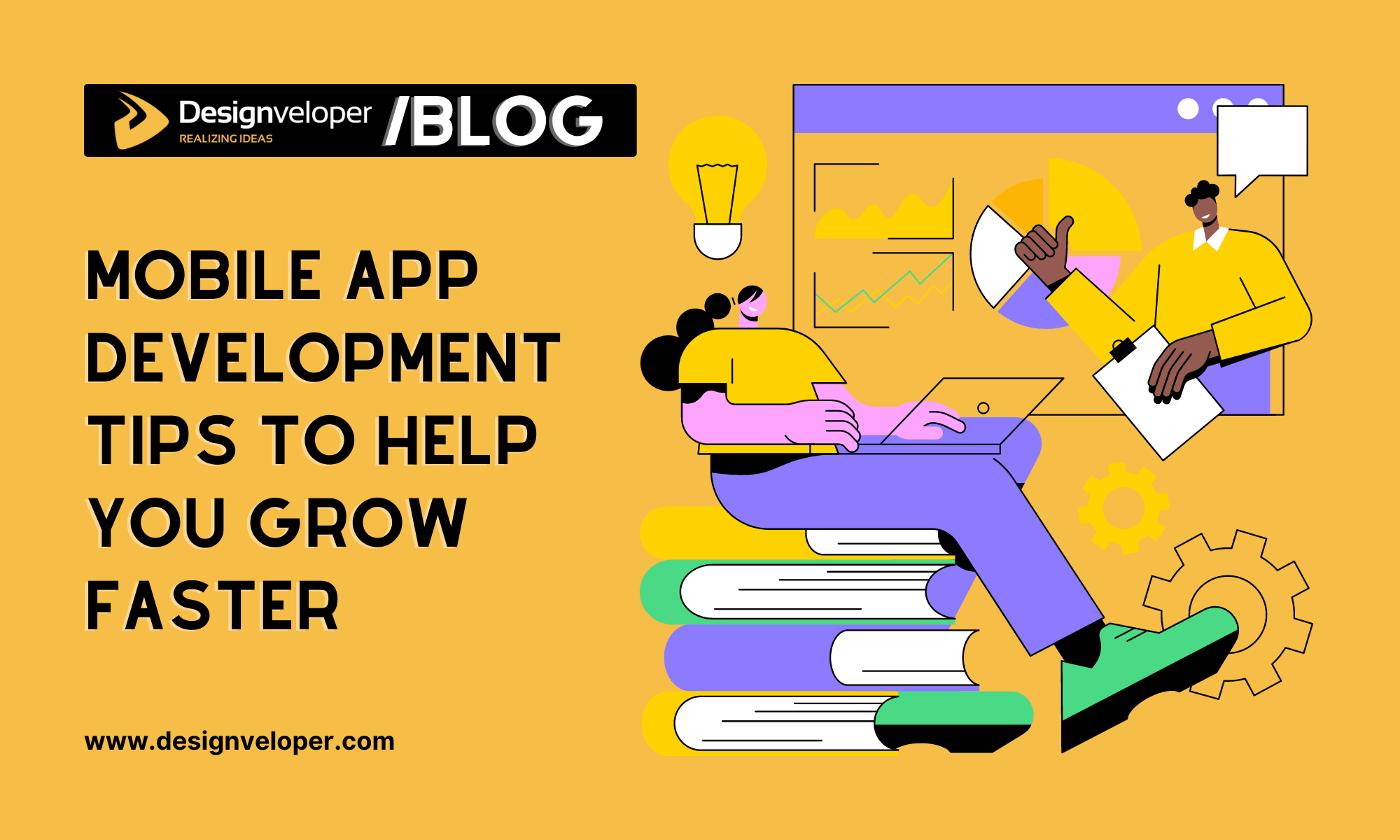
When it comes to the development of mobile applications, it is crucial to remember that mobile application development is not about creating a perfect concept. It is imperative for developers to be informed on the current trends and statistics, especially certain mobile app development tips. The mobile application development market size globally is predicted to reach $606.1 billion by 2032 with a CAGR of 13.1%. This growth they attributed to the increase in the use of smartphones and technology.
But the following are some of the strategies which developers need to use in order to make their projects viable and profitable. For example, cross-platform development is gaining more and more attention at the present moment. Since it allows developers to create app that runs on multiple operating systems, the precious time and costs are saved. Such frameworks as Flutter and React Native are examples of this shift.
But it is equally crucial to study the behavior of the users which can have a different course. Today, app usage accounts for 4-5 hours’ time spent by the average user on the smartphone. This goes to show that there is need to design and develop applications that are interesting and easy to use. They should also add the existing security that will improve protection of the users data.
Get inspired with unique, money-making mobile app ideas in this article.
Top 10 Best Mobile App Development Tips

Building an app is not an easy task. Any projects can be less competitive if they fail to meet users’ demands, and attract and retain customers. So those who want to engage in this rising market need to memorize the 10 tips for successful mobile app development and design mentioned in this blog post.
1. Know your target users
Knowing your intended users is a key element for a successful mobile app development project. Being aware of who will engage with your app helps you design features that suit their requirements. By taking this route, higher user satisfaction and engagement can be achieved.
A number of steps are involved in finding your target audience. To start, define the demographic of your users. Of course, take things like age, gender, and locale into account. The app intended for teenagers, for instance, will significantly differ from the one being created for senior citizens.
After that, examine user behavior and preferences. Resources such as Google Analytics can help to reveal information regarding user behaviors. This data encourages a more tailored user experience.
In addition, think about the psychographics of your users. Get to know their interests, values, and way of life. This data can inform the look and feel of the app, as well as its features.
Take, for example, a fitness application designed for health-conscious consumers; it should include highlights such as workouts tracking and nutrition plans. Alternatively, an app aimed at young adults in the gaming sector may revolve around interactive and competitive qualities.
Applications that are developed for particular user requirements generally experience greater retention. As such, spending time to know your intended users may result in sustained success.
Recommended reading: Top 20 Mobile App Design Tools
2. Choose suitable features and technology
A successful app needs to be based on the right technology. Not all businesses can afford a native app; fortunately, there are more than one options.
Native apps
Building something native is a dream of various product owners, as it can leverage functionalities (albeit advanced such as complex networking), and deliver high performance and great UX. Yet a native app is only developed by separating programming languages for different operating systems (OS). So you need at least two development teams to build apps on iOS and Android, let alone other systems. That costs you a fortune.
Cross-platform apps
These apps will share Software Development Kit (SDK), and be mainly developed on React Native, Xamarin, and Flutter. They still have some native advantages, so run seamlessly and suit those on a limited budget.
Hybrid apps
Similar to cross-platform apps, hybrid ones also use code sharing, thus it’s able to reduce time and cost for development. They can be compatible with all devices, yet run quite sluggishly and hardly optimize the user experience.
Another consideration is the necessary features that should be included in apps to provide decent content. If users do not find anything they need from your app, for example, security for their personal information, they will not hesitate to delete it.
3. Keep up with the latest app development tips
It’s important to keep on top of the latest trends and tips in mobile app development. Rapid reform is characteristic of the industry, as new techniques are often presented. By the year 2024, we project that mobile app downloads will rise to 258 billion. This increase emphasizes the necessity for being aware.

One way to maintain being current is to follow reliable sources. Besides our own blog section, on a regular basis, GitHub Blog and the Forbes Technology Council publish write-ups on the most recent app development advice. The platforms supply insights from industry professionals and address a broad range of themes.
Membership in online communities is another efficient way. Developers share tips and experiences on platforms like Stack Overflow and Reddit which host active forums. Participating in these communities offers important, timely advice.
Going to webinars and conferences can also be helpful. Annual conferences such as Google I/O and Apple WWDC hold sessions concerning the most recent techniques for development. These activities present great chances to receive instruction from the top in the industry.
4. Build a simple, yet intuitive UI/UX app
Making a user-friendly interface is important for achieving success in developing mobile apps.
Begin by getting to know your target audience. To get insights about their preferences and habits, gather research from users. Google Analytics and Hotjar can grant important data. Use this information to brand your products with user personas in your mind.
Simplicity is key. Eliminate clutter and pay attention to important features. A minimized design improves user experience and cuts down cognitive load. As a case in point, the simplicity of Instagram’s design has significantly added to its widespread success.
Navigation ought to be easy to comprehend. Users have to discover what they need in a hassle-free manner. Introduce crystal clear and uniform navigation patterns. We can learn a lot about how to make intuitive navigation by studying Apple’s Human Interface Guidelines.
Employ signs and motions that are familiar. Users have become accustomed to specific symbols and acts. For instance, the hamburger menu icon is widely recognized for navigation. The seamless continuity in design components fosters user trust and comfort.
Test your design with real users. Conduct usability testing to identify pain points and areas for improvement. Tools like UserTesting can facilitate this process. Iterate based on feedback to enhance the user experience.
Finally, think about accessibility. Verify that your app works for people with disabilities. Follow the Web Content Accessibility Guidelines (WCAG) to construct your app for everyone. In widening your audience, accessibility also upgrades universal usability.
Recommended reading: Why Choose React Native for Your Mobile App Like Bloomberg or AirBnB
5. Limit ads and banners
To ensure a good user experience, reducing ads and banners is important. Unnecessary ads can irritate users and cause them to uninstall an app. According to a recent study, 15% of mobile app users uninstall the app because of irritating ads. This demonstrates the necessity of a balanced strategy.
To hold users’ attention, developers need to focus on ad placements that are unobtrusive. Rewarded video ads can be less disruptive and actually serve to improve the user experience. Due to the incentive of in-app rewards, users find these ads to be more tolerable.
Also, developers ought to take into account native ads. These commercials merge effortlessly with the app’s content, which lowers the level of disruption. As per the data presented by eMarketer, native ads produce better engagement than standard banner ads.
In addition, it is necessary to track ad performance. Tracking which ads work best is an option for developers thanks to the use of analytics tools, so they can subsequently make any necessary adjustments. This ensures ads remain relevant and do not disturb.
6. Facilitate ASO & SEO
Mobile app accomplishment largely depends on the ability to encourage App Store Optimization (ASO) and Search Engine Optimization (SEO). ASO centers on enlarging an app’s exposure in app stores, while SEO increases its impact on search engines. The user will discover how both strategies encourage organic traffic and raise download rates.

According to new figures, 70% of mobile users find apps through searches on app stores. As a result, app store listings need to be optimized. This comprises using relevant keywords, writing interesting descriptions, and choosing appealing icons and screenshots.
SEO is equally important. An expertly enhanced website can considerably increase app downloads. Websites with a high ranking result in a rise in app downloads, for example. In order to accomplish this, developers should craft content of good quality, utilize suitable keywords, and build backlinks.
Includes apps such as Evernote and Spotify, both of which are successes. Evernote rose in the app store rankings by enhancing its keywords and descriptions. On the other hand, Spotify employed the strategy of SEO by making engaging blog articles and developing a robust backlink profile.
Recommended reading: How To Outsource SEO & Web Design Processes?
7. Facilitate offline access
Offline access assures that users can keep utilizing the app with no stops. As an example, Google Maps enables users to download maps for use without an Internet connection. This is particularly beneficial for travelers in locations with low network capacity. Spotify lets users download tracks and playlists, guaranteeing continuous music playback.
Developers should contemplate local storage solutions. SQLite and Realm are two of the widely chosen technologies for keeping data locally. Databases in these apps enable them to run smoothly even when offline. In addition, the offline functionality of Progressive Web Apps (PWAs) is made possible by content caching. Increasing user experience and engagement is promoted by this approach.
As well, having access offline can boost app performance. A seamless experience is achieved as a result of reduced network request dependency, enabling quicker app loading speeds. This is particularly important for applications that attract a lot of user engagement, including social media and gaming apps.
8. Utilize third-party integration
Integrating third-party tools may greatly improve a mobile app’s functions.
Making use of third-party APIs can bring about savings in development time and expenses. For illustration, using the Google Maps API permits developers to include location-based services without having to build these from ground up. In a comparable manner, the use of Firebase for authentication and database management may streamline the development activities.
On top of that, third-party integrations enhance user experience. By way of example, adopting payment gateways such as PayPal or Stripe enhances the security of transactions and ensures a smooth experience within the application. Having this convenience might lead to improved user satisfaction and retention levels.
9. Implement strong security measures
Secure mobile app use is important. There has been a substantial increase in the amount of mobile threats reported recently. Specifically, the Lookout Q1 2024 Mobile Threat Report shows that phishing attacks increased by a factor of three, contrasted with the year prior. This indicates the importance of strong security protections.

First thing, keep all crucial data encrypted. The fact that data is protected by encryption means that if it is intercepted, its meaning cannot be deciphered. Employ advanced encryption standards like AES-256. This is a broadly acknowledged technique for safeguarding data.
Secondly, you should deploy multi-factor authentication (MFA). MFA ensures greater protection by requiring users to authenticate their identity with more than one means. This lowers the danger of having unauthorized access.
Thirdly, take part in consistent security audits. Audits on a regular basis can recognize weaknesses that might get taken advantage of later. For this purpose, tools such as OWASP’s Mobile Security Testing Guide can be extremely useful1.
Fourth, secure your APIs. ATTackers frequently target APIs. Guarantee that any and all API messages are secured through encryption and authentication. This forestalls data breaches and unauthorized access.
Use secure coding practices for a fifth strategy. Never put in sensitive info such as API keys and passwords. Instead, make use of secure storage solutions. This procedure offset any dangers connected with exposure.
In closing, teach users about security. Tell users how important strong passwords are and the perils of phishing. It allows them to play an active part in protecting their personal information.
10. Thorough maintainance
The success of a mobile app depends on regular maintenance. App programs that are not kept up to date can become outdated. In 2020, Apple turned down 1 million applications owing to undisclosed features or privacy violations. Up-to-date changes secure alignment with fresh operating systems, ensuring user satisfaction and the app’s performance.
Keeping an app functioning means resolving bugs, upgrading its performance, and including new features. Apps that are not sustained can experience crashes and a slowdown in performance, contributing to negative app store ratings and unfavorable user reviews. Maintenance that is regularly done reduces risk of these issues.
Specific examples of thorough maintenance include monitoring user feedback and analytics. If users report bugs or performance problems, for instance, developers can act to address these matters quickly. Consistent upkeep includes updating the app to suit current security standards, which protects user data and preserves trust.
Recommended reading: Top 8 Mobile App Development Best Practices
Conclusion
In closing, being adept at these Mobile App Development Tips is of the utmost importance for success in the competitive current market. It is expected that the mobile app industry will attain a higher and higher value in the future, which reflects the enormous growth opportunities and innovative prospects.
At Designveloper, we have a considerable background in developing mobile apps. For a case in point, one of our projects, Lumin, has gained more than 90 million users, showing our ability to deliver solutions that are both scalable and of high quality. In addition, our Bonux project highlights our proficiency in creating secure and convenient crypto wallets.
We make certain to be informed regarding the newest trends and technologies. The engagement of AI and Machine Learning in our apps has considerably upgraded user experience. Besides, our team is competent in applying frameworks such as React Native and Flutter to construct cross-platform apps.
In conclusion, using these Mobile App Development Tips ultimately helps you create successful and inventive apps. Designveloper is here to support you by bringing to the table our knowledge and experience. Call us today to begin working with a reliable partner on your mobile app development journey.






Read more topics





























































